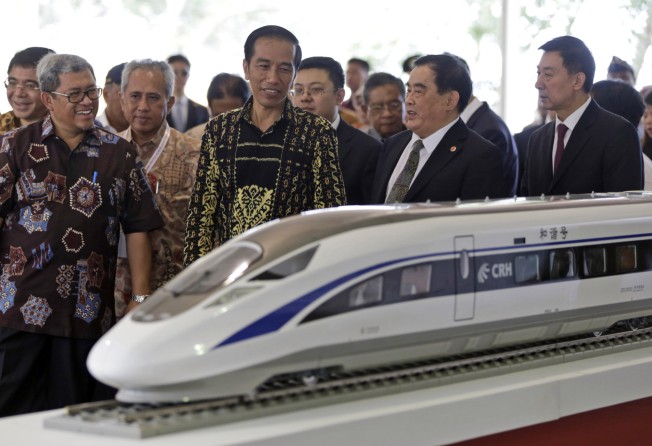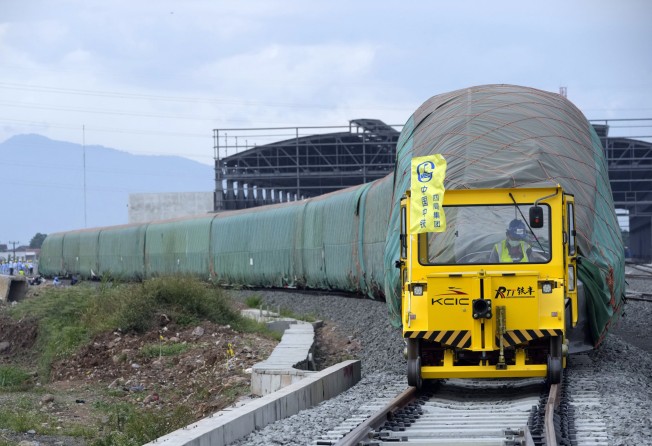
Xi Jinping, Joko Widodo to test Indonesia’s China-made high-speed train after G20 meeting in Bali
- Jakarta-Bandung high-speed railway worth US$7.8 billion is a joint venture between an Indonesian consortium of state-owned companies and China Railway
- Project has been plagued by delays and cost overruns, and is not expected to be operational until June 2023

Indonesian President Joko Widodo and his Chinese counterpart Xi Jinping could take a ride together for a test run of the Jakarta-Bandung high-speed railway next month.
Widodo plans to invite Xi to travel on the China-built train connecting the capital with the West Java city after taking part in the Bali G20 summit on November 15-16, Indonesian Transport Minister Budi Karya Sumadi told Singapore’s The Straits Times.
With a maximum speed of 350kph, the bullet train will shorten the 142km journey between the cities to about 40 minutes from 3.5 hours by the existing rail network.
But Budi said the two leaders won’t be experiencing the thrill of a high-speed rail when they go on the 15km trip in Bandung as the car will only move at 60kmh.

“We will not yet run on full speed – we have not reached that stage yet in the development,” he said.
In August, China delivered the first set of bullet trains for the multibillion dollar project that started in 2015. The project is the first of its kind in Southeast Asia. The facility, built as part of the Belt and Road Initiative, Beijing’s ambitious plan to boost trade and connectivity, has been plagued by delays and cost overruns. The rail network is expected to be operational in June 2023.
Indonesia’s state-owned railway operator KAI said the 8-car train can accommodate 600 passengers and comes with a VIP class, first- and second-class seats and a dining coach. It added tickets will range from 250,000 rupiah (US$16) to 350,000 rupiah (US$22).
In February, PT KCIC – a consortium of Chinese and Indonesian companies building the rail link – said it will now take 40 years for its investment to become profitable, twice as long as initial estimates, due to plans to relocate the country’s capital city.
The project also faces a cost overrun of about US$2 billion, bumping up the estimated price to 113 trillion rupiah (US$7.84 billion), Dwiyana Slamet Riyadi, president director of PT KCIC, told a parliamentary hearing in February.

Because of the plan to move the capital from Jakarta to Borneo island in 2024, trains connecting the cities are expected to carry about 31,000 passengers per day, about half the previous daily estimate of some 61,000, Riyadi said.
During his July visit to Beijing – Jakarta’s third-largest investor – Widodo and Xi affirmed their commitment to finish the high-speed rail project. They also agreed to strengthen bilateral and economic engagements despite repeated incursions by Chinese fishing vessels into the Natuna Islands that have strained relations between the countries, which is otherwise largely positive.
The Natunas is a region belonging to Indonesia that borders the disputed South China Sea. Jakarta has accused Chinese and Vietnamese ships of entering its 321km exclusive economic zone (EEZ) around the islands, and has clashed several times with Chinese coastguard vessels escorting Chinese fishing boats in the area.
Indonesia sees Chinese activities within the Natunas EEZ as illegal fishing, while Beijing claims they are “traditional fishing grounds”.